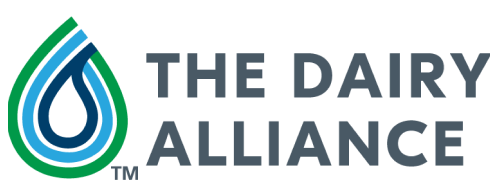The #1 Sports Beverage: Real Milk
Everywhere you look, there seems to be a new sports beverage hitting the market. Many are made popular by savvy marketing strategies leveraging the power of social media to engage with pre-teens and teens. While many adolescents are naturally stoked about the idea of drinking the same beverage as their favorite YouTuber or athlete, limiting the supply of these beverages to create skyrocketing demand has also gotten the attention of parents. I hear a lot of parents asking, “Are these drinks healthy?”
Many of these newer beverages have little to no research to support their use and come with a hefty price tag. Despite these facts, I often wonder how many parents succumb to the pressure of purchasing these beverages while losing sight of cheaper and more health-promoting options.
The True Sports Beverage
As a nutrition scientist and sports dietitian with over two decades of experience as a researcher, teacher, and practitioner, I am concerned that one key beverage is being overshadowed. While I think there is a time and place for some sports beverages, I also believe that most families overlook real milk as a performance lifestyle beverage that checks all the boxes to support health and athletic performance. The benefits of milk go well beyond its calcium and vitamin D content, and in fact, support hydration, fueling, and recovery of young athletes!
There are specific evidence-based nutrition guidelines that help active individuals maintain optimal hydration and fueling. The natural electrolytes, carbohydrates, and high-quality protein in milk make it a winner when it comes to maximizing fluid absorption, hydration, and fuel levels. Research shows that milk is one of the best beverages for hydration, even better than water or sports drinks. Teens can benefit from the hydrating effects of white or chocolate milk during the school day, leading up to their practice or competition.
Lactose intolerant? Try lactose-free milk.It's real milk, without lactose. Furthermore, when compared to other sports drinks, milk is a nutritional bargain, providing electrolytes, carbohydrates, and complete, high-performance protein at approximately 25 cents per 8-ounce glass. Instead of expensive sports drinks, choose milk leading up to your next race/workout to help you stay hydrated longer and maximize performance.
Real milk is also ideal to help teens with recovery following training and competition. Nutritional recovery is important for athletes of all ages and milk has a real advantage over sports drinks at a fraction of the cost. The reason is because of the three essential components of complete nutritional recovery (i.e. the 3 Rs): Rehydration, Repair, and Refuel. Maximal rehydration requires the proper mix of fluid and electrolytes. Muscle repair requires dietary protein and refueling properly for the next practice or competition is not complete without carbohydrates. Milk’s electrolyte content, paired with carbohydrates and high-quality protein, makes it more effective than water or sports drinks at promoting complete recovery after exercise.
In summary, the value of milk extends well beyond its vitamin and mineral content! Helping you stay healthy and hydrated, build lean muscle, reach your fitness goals, and recover after a tough workout, milk does it all!
Dr. Travis Thomas, PhD, RDN, CSSD, LD, FAND, earned his B.S. and M.S in Nutrition, with an emphasis on Clinical Nutrition and Wellness from East Carolina University. After becoming a Registered Dietitian in 2001, he worked as a Clinical Dietitian in Greensboro, NC, managing medical nutrition therapy for patients in general medicine, cardiac, rehabilitation, and intensive care units.
Dr. Thomas completed his Ph.D. in Nutritional Science at the University of North Carolina Greensboro and a Post-Doctoral Fellowship at the University of Kansas. Throughout his doctoral and postdoctoral studies, Dr. Thomas expanded his clinical knowledge base to include aspects of exercise physiology, sports nutrition, body composition, and hormone physiology. Dr. Thomas is a Board Certified Specialist in Sports Dietetics (CSSD) and is currently an Associate Professor of Clinical and Sports Nutrition and Program Director of the Clinical Nutrition Master's program in the College of Health Sciences at the University of Kentucky.







